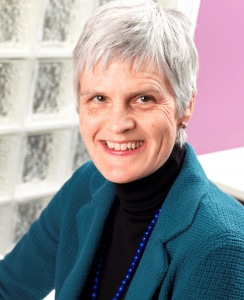Branch
Select your branch
Mentoring Early-stage Science Start-ups and Creating Successful Ventures
Mentoring Early-stage Science Start-ups and Creating Successful Ventures
Innovation Forum Cambridge interviews IMAGINE IF! Mentor Miranda Weston-Smith
 Miranda has mentored and judged the IMAGINE IF! competition and accelerator programme in Cambridge for several years. We talk to her about being a mentor, the life sciences sector in Cambridge, and creating successful ventures.
Miranda has mentored and judged the IMAGINE IF! competition and accelerator programme in Cambridge for several years. We talk to her about being a mentor, the life sciences sector in Cambridge, and creating successful ventures.
Innovation Forum Cambridge (IFC): Why have you committed yourself as a mentor?
Miranda: The bio entrepreneurs the Innovation Forum attracts to IMAGINE IF! are impressive. They are bold, practical and ambitious to make the world a healthier place. They are working to solve important problems and bring fresh thinking with technology excellence and a magnetic ability to build communities of like-minded people. I am delighted that Sixfold Bioscience, which is developing drug delivery nanotools for cancer, has been selected for the global IMAGINE IF! finals. Sixfold was founded by three Postdocs and PhDs from the University of Cambridge and the Francis Crick Institute in London – an excellent example of collaboration for improving global health.
IFC: How do you support start-ups in your role as mentor?
Miranda: Much of my work as a mentor involves helping companies raise funds and build a sustainable business. The companies usually have a prototype and customers and are ready to go up the growth curve. People are often searching for the key application for their products and when they find the alignment, customers and funding flow. I support the companies joining up technology innovation with markets and investor needs.
IFC: How has the science and technology innovation ecosystem evolved in the past five years? How will it continue to be successful in the future?
Miranda: The quanta of funding companies in the Cambridge biocluster attracts has grown substantially over the last five years, be this for technologies to support life sciences research, the development of medicines and clinical care. Patient capital and more recently crowdfunding are backing life sciences innovation as well as corporate, private and venture capital investors.
Genomic health is developing new treatments involving IT innovation, and with technology convergence, bringing new investors. As our understanding of human biology quickens, we will see more companies growing from tools providers to product businesses.
We are more mindful now of the diverse needs of people around the globe and this is creating more people-centric business models in biotech and healthcare – and this will continue.
IFC: Which three pieces of advice would you give to young science entrepreneurs to achieve success in the science and technology innovation ecosystem?
Miranda:
Passion to do the unimaginable
Porosity for openness to ideas and evolution, and
Persistence to see you through!
About IMAGINE IF!
The IMAGINE IF! is the first truly global competition and accelerator programme for science ventures. Industries represented by IMAGINE IF! start-ups include life sciences, healthcare, digital health, clean tech and advanced engineering. The accelerator provides to early stage science start-ups extensive opportunities: mentorship, the potential to secure non-dilutive capital, free advice from leading professional companies and rapid networking across the Innovation Forum platform.
At the IMAGINE IF! 2017 Cambridge Local Final on 9th October, the top 9 start-ups from Cambridge pitched their businesses in front of a panel of experts in industry, research and entrepreneurship. The winner in Cambridge is Immaterial, a company which manufactures metal-organic framework materials that adsorb and separate gases at the molecular level to dramatically reduce the cost of separating, storing and transporting gas. The winner advances to the global Top 20 teams in the competition. Sixfold Bioscience and CamMat: Graphene Sensor Platforms are also identified as global Top 20 start-ups selected from over 200 applications worldwide. The Global Top 20 start-ups will be pitching on 5th December at the Innovation Forum Leaders Conference in Oxford.
About Miranda
Miranda helps early stage biomedical businesses attract investment and develop their business strategy. She founded and runs BioBeat, a collaborative innovation platform for bio entrepreneurs and leaders. This year, the Francis Crick Institute was hosting the BioBeat summit on re-shaping biotech partnering to impact health and wealth. The 2017 edition of BioBeat’s annual “50 Movers and Shakers in BioBusiness” report was released on 2nd November.
